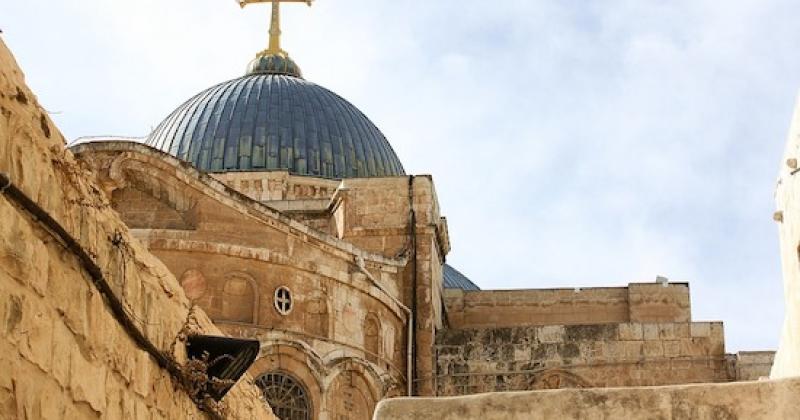In the northern hemisphere, the Week of Prayer for Christian Unity is celebrated from January 18-25, while the southern hemisphere observes the ecumenical event around the time of Pentecost.
In Jerusalem, it begins on the first Saturday after January 19. Thus, this year's Christian Unity Octave will be observed in the Holy City from January 25-February 2.
WHY IS THE DIFFERENCE?
It is to respect the Armenian Apostolic Church, which celebrates Christmas on the night of 18-19 January, according to the Julian calendar.
The celebrations are followed by the traditional exchange of Christmas greetings with other Christian denominations, local institutions and communities, as well as with civil authorities. Therefore, the commencement of the Week of Prayer for Christian Unity must wait.
It's amazing how many people who are not from here accuse the Churches of Jerusalem of perpetuating divisions in Christianity, mainly because the variety of faiths is more visible in the Holy City.
Frans Bouwen is a specialist on Eastern Churches who has lived in Jerusalem the past 50 years. As he likes to point out, "None of the divisions of the Church were born here."
When it comes to divisions, Christians in the Holy Land are experts in unity -- not of the theological sort, but of practical unity.
Imagine this: there are 180,000 Christians in Israel and Palestine combined, representing only one percent of the total population. And, yet, they are members of as many as thirteen official Churches. Given this fact, it is quite normal that a Palestinian Christian family would have relatives who belong to several different denominations.
When I lived in the Old City, I lived with Orthodox Christians who became Evangelical Christians. They had five children who espoused "shared values" from four different Churches. Ecumenism was present on every floor of the home.
Of course, each bishop is the guarantor of the tradition of his Church. And some are less open than others. But it's no small thing that the representatives of the thirteen official Churches meet every two months. Of course, it's not to do theology, but to allow the little flock of the Holy Land, which has its own challenges, to speak with a united voice.
Despite this, we sometimes witness epic fights in holy places. They take place on a fixed date, two to three times a year.
People often forget that the rest of the time these various denominations share the holy places, such as the Basilica of the Nativity and the Holy Sepulcher, and live together every day as Christians who are there in the unity of faith. Here Jesus was born, here He died and rose again.
Every evening during coming week, members of these divided Christian communities will gather together and pray for unity. After each celebration they will share refreshments and the joy of fellowship.
So yes, it's true that unity is not perfect. And, no, we are not close to sharing communion at the same Eucharistic table. But we are already experiencing something that is beautiful and good.
And we are very proud of this trademark of the Church of the Holy Land, local and universal.
